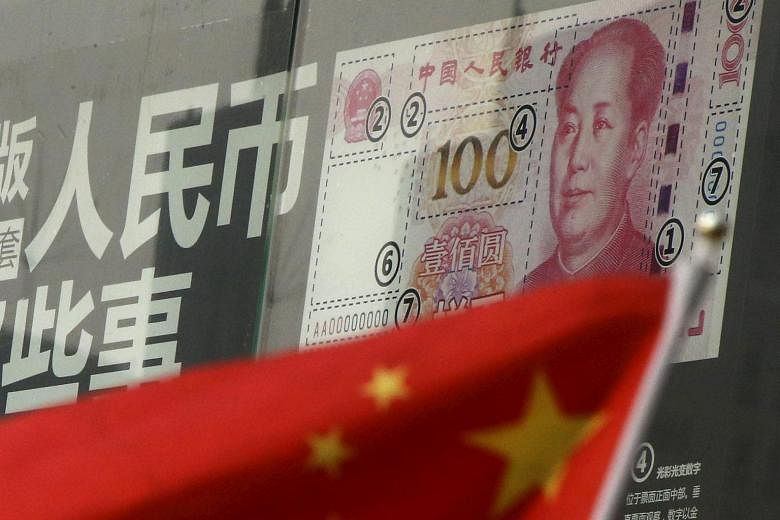1. China market-moving PMI starts week off
It's the week before the Lunar New Year but investors will be bracing themselves for the latest instalment of two key surveys of China's manufacturing activity - the same surveys that a month ago triggered January's stock market rout.
At 9am on Monday, Singapore time, China's National Bureau of Statistics (NBR) releases its monthly manufacturing purchasing managers' index (PMI) and the figures are expected to be grim. The official PMI has shown contraction in China's massive industrial sector for five straight months, and December is expected to be no different.
At 9.45am, the Caixin manufacturing PMI comes out and is expected to show that factory activity shrank in the world's second biggest economy for the 10th straight month in December. The Caixin-sponsored series covers a much smaller sample of private companies and tends to be more volatile than the official NBR survey, which focuses on larger state enterprises.
2. Focus also on central banks
Recent events will have markets playing very close attention at a raft of central bank decisions and speeches this week.
Last Friday, the Bank of Japan stunned markets with its shift to negative interest rates - a measure ruled out by BOJ governor Haruhiko Kuroda just a week earlier. After struggling with persistently low inflation and weak growth despite a massive programme of asset purchases, the BOJ has now turned to the same weapon which the European Central Bank adopted back in June 2014, when it became the first major central bank to use negative rates to push its currency lower. A weaker yen should help spur inflation and provide a boost to Japan's massive export sector.
Stock markets around the world rallied rebounding oil prices - and the sight of another central bank riding to the rescue. A week earlier, ECB chief Mario Draghi signalled that his bank - which in December cut its deposit rate to an historic low of negative 0.3 per cent - is prepared to launch a fresh round of monetary stimulus as soon as March.
But Japan's move - a de facto devaluation of the yen - could create major problems for China's central bank, which is battling to prop up the yuan despite massive capital outflows. It could also trigger a cycle of competitive currency devaluations which fuels deflation and raises the threat of a currency war.
The BOJ's and ECB's moves have also intensified fears in some quarters that the global economy is on the brink of a recession, and may pressure the US central bank to delay further tightening.
Against this backdrop, ECB chief Draghi will speak on Tuesday and on Thursday, while US Federal Reserve vice-chairman Stanley Fischer will speak on Tuesday.
The Bank of England's rate decision, coinciding with the release of the year's first inflation report, comes out on Thursday.
The Reserve Bank of Australia board meets on Tuesday and while no rate cut is expected, some analysts say the RBA could signal it is more willing to lower rates following the BOJ move.
3. China defends the yuan
Speaking of currency wars, media reports say some of the biggest hedge funds in the world are mounting new attacks against the yuan. They are shorting the yuan in a bet that China will let its currency weaken further in a bid to halt a flood of money leaving the country and jump-start economic growth. China, in turn, declared war on the speculators last week.
Will this pre-Lunar New Year week give Beijing a break from the battle or will things come to a boil this week
4. US jobs report
A raft of US data next week, culminating in Friday's jobs report, will offer fresh clues on the health of the US economy after figures last week showed growth slowed abruptly in the fourth quarter.
The US Labour Department's report on Friday is expected to show non-farm payrolls increased just 200,000 in January, according to a Reuters survey of economists, as some of the boost from the mild weather and holiday hiring fades. The unemployment rate is expected to stay at a 7 1/2-year low of 5 per cent. Payrolls processor ADP is seen reporting on Wednesday that private employers added 200,000 jobs in January, lower than the 257,000 they added in December, according to a Reuters survey.
Separately, there is the January manufacturing survey by the Institute of Supply Management on Monday (PMI-equivalent), ISM services index and factory orders on Thursday and trade figures on Friday.
5. Singapore PMI
The first reading of Singapore's manufacturing sector this year comes on Tuesday with January PMI data. December's PMI showed factory activity shrank for the sixth straight month as hiring, production and new demand all fell further.


